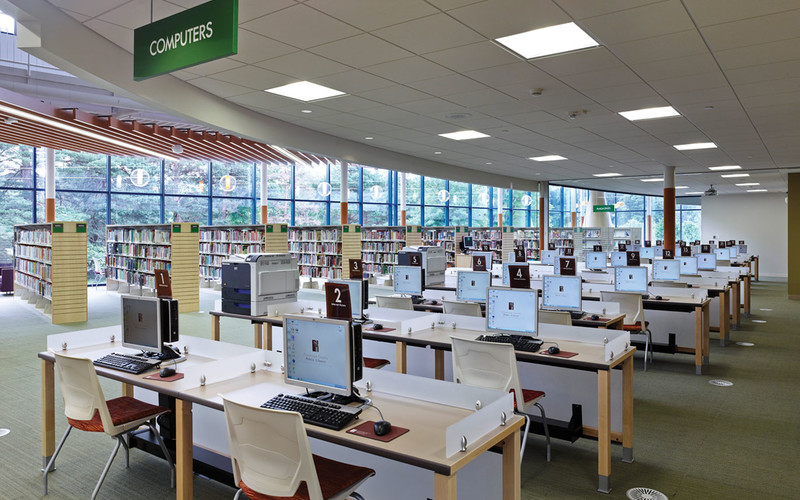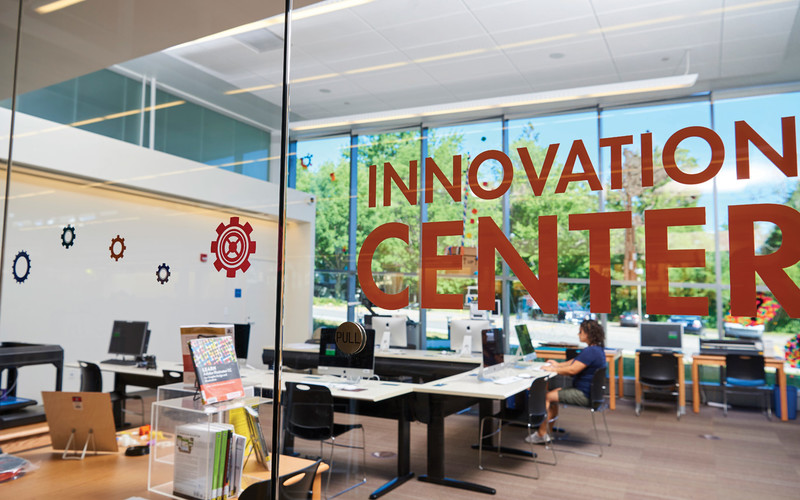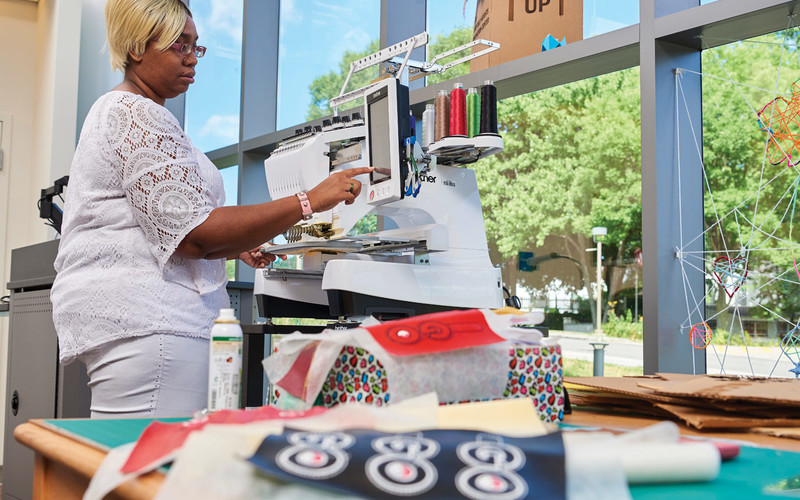Ermler’s NYPL branches offer one-on-one career coaching and more than 20 workshops a month on a wide variety of topics, such as creating a podcast, programming with Python, building a website and using Adobe Photoshop.
In May, the Science, Industry and Business Library is slated to move to a new location that will include full media labs for adults and teens, including video and teleconferencing equipment that people can use for online courses and in their job searches. The labs will also contain Macs with the latest versions of software, such as Adobe Photoshop and Autodesk’s AutoCAD.
“There’s a large demand,” Ermler says of the equipment and services at the two branches. “We’re trying to bridge the gap with underserved populations in job searches. Libraries are places where people can be stress-free, because they’re not pressured to spend $1,600 for a course.”
The Charleston County Public Library in South Carolina has its own Tech Team, whose members teach more than 50 different classes, including on how to use different types of computers and devices. They primarily use Windows 10 laptops, but also an iPad Pro, a MacBook Pro, a Samsung Galaxy tablet and Google Chromebook laptops for classes and demonstrations. The team offers beginner and advanced classes in Microsoft Office, and there are plans to offer a new class on smart home technologies. The library’s new branches also have digital creation labs and creative studios with high-end audio, video, photography and design equipment.
MORE FROM STATETECH: Discover how libraries are catering to gig economy workers.
Libraries Help with Digital Job Searches
Most people — 81 percent of Americans, according to the Pew Research Center — have smartphones. That’s helped shrink the digital divide, but access to technology doesn’t always translate into knowledge about using it effectively, explains Jennifer Lively, manager of the Tech Team. “Imagine trying to write a resume or fill out an online job application on a smartphone,” she says.
Libraries are filling that gap. For instance, Charleston has HP ProOne 600 and Dell OptiPlex 5270 all-in-one desktops that people can use to search for jobs, and Tech Team members can help them understand how to navigate the web, conduct online job searches, create resumes and apply for jobs through SC Works, the state’s job search engine.
All of the Charleston branches that offer classes also have mobile laptop stations, where students can use Dell Latitude 5500 notebooks. There’s Wi-Fi throughout all of the branches, and most training libraries have a MiFi hotspot from Verizon in case people have trouble connecting their devices while receiving one-on-one assistance.
They also conduct technology discussions and use mounted NEC P474U and Epson projectors displaying images from the Dell notebook computers so the class can follow along. (Libraries also have portable projectors in case problems arise.) One class, for instance, explores videoconferencing software such as Skype, because so many interviews are conducted that way, Lively says.
Recognizing frustration among many job seekers completing digital job applications, NYPL’s career coaches created a computer class dedicated to helping them complete the online forms with help of a coach.
“They could go through pages and pages of online applications only to make a mistake and get sent back from Page 10 to Page 1,” Ermler says. “The coaches can help them navigate the process a little faster.”
Libraries have long been on the front lines of bridging the digital divide, particularly when it comes to career services. Now, with the job search process largely online, their services are more vital than ever, helping tech-savvy job seekers gain in-demand skills.













